Plenary Presentation: Intrauterine Microbes: Missing or the Missing Link?
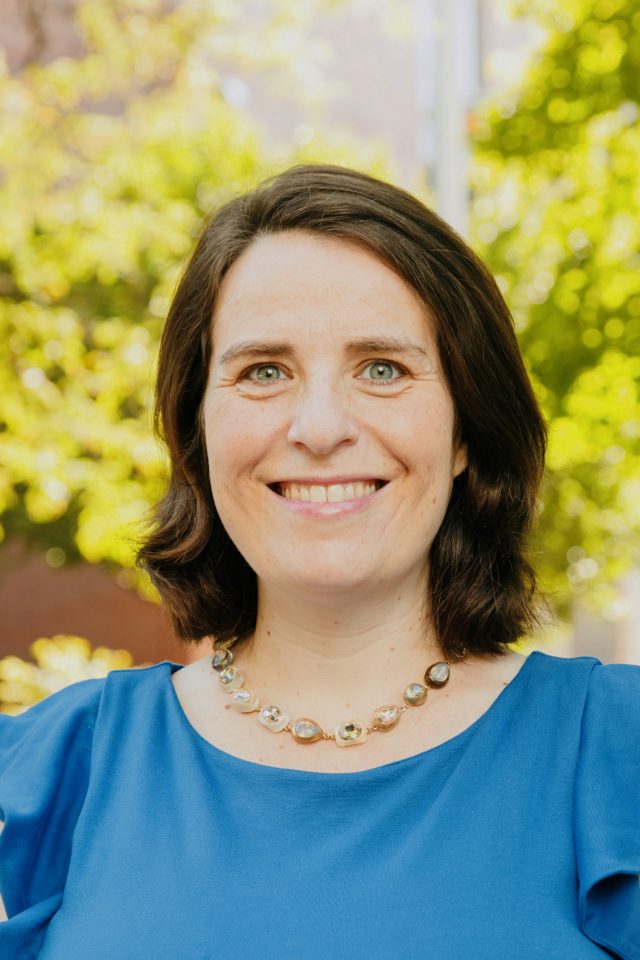
Tamar Gur
MD, PhD, Assistant Professor, Psychiatry & Behavioural Health, Neuroscience, Obstetrics & Gynecology; Associate Director, Medical Scientist Training Program, College of Medicine, The Ohio State University, Columbus, OH
Dr. Gur received both her medical degree and PhD at the University of Pennsylvania, where she studied the effects of selective serotonin reuptake inhibitors (SSRIs) on neurogenesis in the laboratory of Dr. Julie Blendy. She completed her residency training in Psychiatry at the Hospital of the University of Pennsylvania, where she honed her research interests in women’s mental health. Her clinical work at Ohio State focuses on perinatal and postnatal depression and anxiety, which dovetails with her research interest on the effect of maternal mental illness and its treatment on the developing organism. She uses a variety of techniques to investigate the transgenerational transmission of mental illness, including rodent models and translational techniques.
Plenary Presentation: The Genetics of FASD: Accelerating Research Advances

Tatiana Foroud
PhD, Professor, Department of Medical and Molecular Genetics, School of Medicine, Indiana University, Indianapolis, IN, USA
Tatiana Foroud, PhD, is a Distinguished Professor and Chair of the Department of Medical and Molecular Genetics at Indiana University School of Medicine (IUSM) in Indianapolis, IN. She has over 20 years of experience conducting genetic research. Dr. Foroud is a founding member of the Collaborative Initiative on FASD, a multinational, interdisciplinary research team, and has been a leader in the field of FASD research for more than 15 years.
Plenary Presentation: Synergistic Effects of Cannabinoids and Alcohol
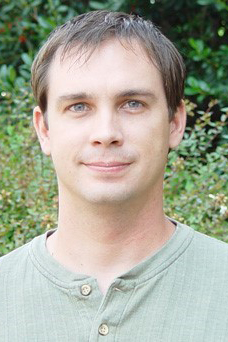
Scott Parnell
PhD, Assistant Professor, Bowles Centre for Alcohol Studies, Department of Cell Biology and Physiology, University of North Carolina, Chapel Hill, NC, USA
Dr. Parnell received his undergraduate degree from Texas A&M University. He stayed at Texas A&M to complete his Ph.D. under the mentorship of Dr. James West. He then went on to a post-doctoral fellowhip at the University of North Carolina in the laboratory of Dr. Kathy Sulik. Following his post-doctoral fellowship, Dr. Parnell took a faculty position at UNC where his laboratory continues to study the mechanisms and genetic susceptibilities underlying the effects of prenatal drug exposure.
Embryonic Exposure to Cannabinoids and Alcohol Alters Early Development in Zebrafish and May Have Long-term Consequences in Adults

Declan Ali
PhD, Associate Dean Research, Faculty of Science; Professor, Department of Biological Sciences, University of Alberta, Edmonton, AB, Canada
Declan Ali completed his BSc and PhD at the University of Toronto. He was appointed to the Department of Biological Sciences at the University of Alberta in 2000. Promoted to Full Professor in 2011, Dr Ali has served on numerous departmental, faculty and University committees. He served as Associate Chair Undergraduate Studies in the Department of Biological Sciences and as Acting Associate Vice-President (Research) at the University. He is currently the Associate Dean (Research) in the Faculty of Science. He has been an invited scholar and/or speaker in Japan, England, Spain, China and Mexico. The overall goal of his lab is to understand animal behaviour in the context of development of the nervous system, and more recently has been investigating the impacts of alcohol and cannabinoid exposure in developing zebrafish.
Plenary Presentation: Alterations in the Gut Microbiota Following PAE: Early Evidence from an Animal Model
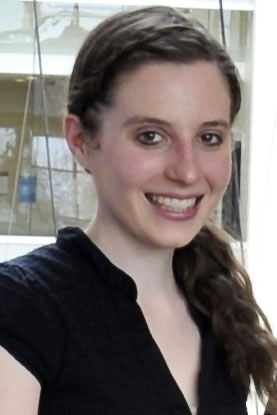
Tamara Bodnar
PhD, Postdoctoral Fellow, Department of Cellular and Physiological Sciences, University of British Columbia, Vancouver, BC, Canada
Tamara Bodnar is a postdoctoral fellow in the department of Cellular and Physiological Sciences at the University of British Columbia, supervised by Dr. Joanne Weinberg. Her research examines the impact of prenatal alcohol exposure on immune function across development in both humans and animal models. The overall goal of her research is to identify both immune-related biomarkers and targets for possible immune-based interventions for individuals with FASD.
Plenary Presentation: Cannabinoids, Alcohol, and Pregnancy: How Should Current Knowledge Change Policy, Practice, and Behavior?

Michael Charness
MD, Chief of Staff , VA Boston Healthcare System; Faculty Associate Dean, Professor of Neurology, Harvard Medical School; Associate Dean, Professor of Neurology, Boston University School of Medicine, West Roxbury, MA, USA
Dr. Charness is Chief of Staff at the VA Boston Healthcare System and Professor of Neurology and Associate Dean both at Harvard Medical School and Boston University School of Medicine. He studies the neurobiology of alcohol effects on development. He is scientific director of CIFASD and chairs the external advisory board for the NIH-funded Adolescent Brain Cognitive Development (ABCD) study. He served as president of the Research Society on Alcoholism (RSA), on the Board of Directors of the International Society for Biomedical Research on Alcoholism, and as a member of the National Advisory Council for NIAAA. He received the Frank Seixas Award from RSA, a MERIT Award and the Mark Keller Honorary Lecture Award from NIAAA, the Excellence Award from NOFAS, the Henry Rosett Award from the FASD Study Group of RSA, and the R. Brinkley Smithers Distinguished Scientist Award and James H. Tharp Award from the American Society of Addiction Medicine.
Plenary Presentation: Registry Updates: Advancing Research through Participation

Claire Coles
PhD, Professor, Department of Psychiatry and Behavioral Sciences and Pediatrics, Emory University School of Medicine, Atlanta, GA, USA
Claire D. Coles, Ph.D., Professor of Psychiatry and Pediatrics at Emory University School of Medicine, Atlanta, Georgia; Director, Center for Maternal Substance Abuse and Child Development. Dr. Coles is the principal investigator of the CIFASD “FASD in Adults: Health and Behavior” Research Study being carried out in Atlanta and Seattle.
Plenary Presentation: Prenatal Alcohol Exposure and Sleep

Sarah M. Inkelis
Student Representative; MS, PhD Student, San Diego State University/UC San Diego Joint Doctoral Program in Clinical Psychology, San Diego, CA, USA
Sarah Inkelis is a doctoral candidate at the San Diego State University/UC San Diego Joint Doctoral Program in Clinical Psychology. She began her research career studying the effects of adolescent alcohol use on sleep and brain development. As a graduate student researcher at the Center for Behavioral Teratology, her research now focuses on the neuropsychology of FASD. Under the mentorship of Dr. Jennifer Thomas, Sarah is now investigating the relationship between sleep, cognition, and behavior in children with FASD, with the goal of elucidating additional avenues for intervention in this population.
Plenary Presentation: Criminal Culpability through the Lens of FASD

Karen Steele
JD, Attorney at Law, Karen A. Steele, Esquire, Salem, OR, USA
Karen A. Steele, JD is a sole practitioner in the law with a BA from the University of Wisconsin—Madison in Journalism and Political Science, and a JD from Washington University in St. Louis. Her practice focuses on neurodevelopmental and other specialized issues in capital and non-capital cases, in trials, appeals and post-judgment challenges. Her interests include the relevance and treatment of neurodevelopmental conditions including FASDs in justice settings; ethical and practice standards in investigating, integrating and presenting neuroscientific information to address fact-finder concerns; and the importance of forward-thinking mitigation in defense preparation.
Plenary Presentation: The Golden Tie – Understanding and Supporting Healthy Sleep in FASD

Ana Hanlon-Dearman
MD, MSc, FRCPC, FAAP, Medical Director, Manitoba FASD Centre, Winnipeg, MB, Canada
Dr. Hanlon-Dearman is a developmental pediatrician and the Medical Director of the Manitoba FASD Centre and the Child Development Clinic at Specialized Services for Children and Youth in Winnipeg Manitoba. She is a Professor of Pediatrics and Child Health at the University of Manitoba and is the Section Head of Developmental Pediatrics. She is a Diagnostic Co-Lead with CanFASD and is involved in FASD research nationally. She has consulted internationally in FASD diagnosis.
Plenary Presentation: CIFASD
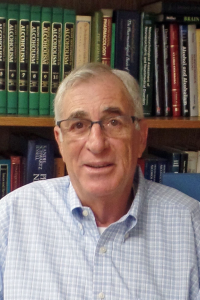
Edward Riley
PhD, Distinguished Research Professor, Center for Behavioral Teratology, San Diego State University, San Diego, CA, USA
Dr. Riley is a Distinguished Professor at San Diego State University and has been involved in studying FASD since the late 1970s. He currently directs the Collaborative Initiative on FASD, a large multisite, multidisciplinary research project on FASD.

Rajesh C. Miranda
PhD, Professor, Department of Neuroscience and Experimental Therapeutics, College of Medicine, Texas A&M University Health Science Center, Bryan, TX, USA
PhD, Professor, Research Fellow, School of Biomedical Sciences and Child Health Research Centre, University of Queensland, Brisbane, Australia. Rajesh Miranda is a Professor of Neuroscience at Texas A&M Health Science Center. His research for the past 15 years has focused on the molecular and cellular mechanisms underlying brain effects due to prenatal alcohol exposure. Recently, his research has focused on developing strategies for the early diagnosis of FASD. He serves on the FASD prevention collaborative at the Texas PHS Office for the prevention of developmental disabilities (TOPDD).
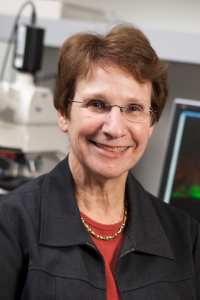
Joanne Weinberg
PhD, Professor and Distinguished University Scholar, Emerita, Department of Cellular & Physiological Sciences, University of British Columbia, Vancouver, BC, Canada
Dr. Joanne Weinberg is Professor and Distinguished University Scholar, Emerita, in the Department of Cellular and Physiological Sciences at the University of British Columbia. She has associate appointments in the Department of Psychology, the Center for Brain Health, and the BC Children’s Hospital Research Institute. Dr. Weinberg’s research has utilized animal models to investigate effects of prenatal alcohol exposure and early life stress or adversity on brain and biological development, with a particular focus on hormones, the immune system, and neurobehavioral outcomes. As part of the Collaborative Initiative on FASD (CIFASD) she is currently extending this research to cohorts of women and children

Christina Chambers
PhD, MPH, Professor, Department of Pediatrics and Family Medicine and Public Health, School of Medicine; Co-Director, Center for Better Beginnings; University of California San Diego, La Jolla, CA, USA
PhD, MPH, Professor, Department of Pediatrics and Family Medicine and Public Health, School of Medicine; Co-Director, Center for Better Beginnings; University of California San Diego, La Jolla, CA, USADr. Christina D. Chambers is co-director of the Center for Better Beginnings and is a professor in the Departments of Pediatrics and Family Medicine and Public Health in the School of Medicine at the University of California, San Diego. She is the program director of MotherToBaby California, a service providing evidence-based information on exposures during pregnancy and lactation for women and healthcare providers, and is director of the UCSD CTRI Center for Life Course Research.

Christie Petrenko
PhD, Clinical Psychologist and Researcher, Mt. Hope Family Center, University of Rochester, Rochester, NY, USA
Christie (McGee) Petrenko, Ph.D. is a clinical psychologist and researcher who has been conducting research with individuals with FASD since 2003. She completed her graduate training with Edward Riley and Sarah Mattson in San Diego and is currently a faculty member at Mt. Hope Family Center, University of Rochester. Her research focuses on the efficacy of interventions aimed at preventing secondary conditions. She also runs a multidisciplinary FASD clinic providing diagnostic and intervention services.
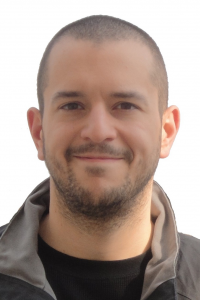
Cristiano Tapparello
PhD, Research Associate, Department of Electrical and Computer Engineering, University of Rochester, Rochester, NY
Cristiano Tapparello, Ph.D. received his Ph.D. in Information Engineering from the University of Padova and is currently faculty in the department of Electrical and Computer Engineering at the University of Rochester. His research interests broadly reside in the area of wireless ad hoc and sensor networks and mobile cloud computing. Moreover, he developed a particular interest in the design of novel techniques to facilitate the development and diffusion of smart and connected healthcare solutions.
Sarah Mattson
PhD, Professor, Department of Psychology, San Diego State University, San Diego, CA, USA
Dr. Mattson is a licensed clinical psychologist with expertise in neuropsychology. She has been conducting research on the effects of prenatal alcohol exposure on brain and cognition for over 20 years. Dr. Mattson’s primary interests are in issues surrounding the sensitivity and specificity of diagnostic measures as used to accurately identify individuals affected by prenatal alcohol exposure.

Michael Suttie
PhD, Researcher, Medical Image Analysis, Nuffi eld Department of Women’s Reproductive Health, University of Oxford, Oxford, UK
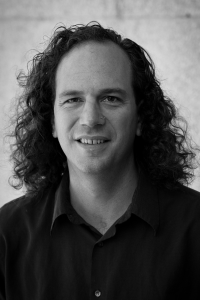
Johann Eberhart
PhD, Associate Professor, Molecular Biosciences, University of Texas at Austin, Austin, TX, USA
Yohaan Fernandes
PhD, Postdoctoral Fellow, Eberhart Lab, Department of Molecular Biosciences, Waggoner Center for Alcohol & Addiction Research, University of Texas at Austin, Austin, TX, USA
Plenary Presentation: Global Action on FASD Prevention Research, Policy and Practice

Nancy Poole
PhD, Director, Centre of Excellence For Women’s Health; Prevention Lead, CanFASD Research Network, Vancouver, BC, Canada
Nancy Poole, PhD, is the Director of the Centre of Excellence for Women’s Health, and the Prevention Lead for CanFASD Research Network. Nancy leads knowledge translation, network development, and research related to improving health policy and service provision for girls and women facing a range of health and social concerns, advancing trauma informed and gender transformative approaches, and incorporating strengths based and Indigenous wellness approaches in all research, practice and policy initiatives.
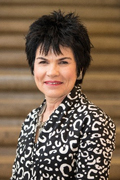
Leana Olivier
PhD, Chief Executive Officer, Foundation for Alcohol Related Research (FARR), Cape Town, South Africa
Leana Olivier is the CEO of FARR and a Research Fellow at the Faculty of Health Sciences, University of Stellenbosch, South Africa. Jaco Louw, a Research Psychologist and Project Manager at FARR. He is currently doing his PhD in Psychology at the University of Stellenbosch. Lian-Marie Drotsky is an Occupational Therapist and Project Manager at FARR. She is busy with her Masters Degree at the University of Cape Town, South Africa. Denis Viljoen, Human Geneticist and FASD Clinician, is also the Chairperson of FARR. He is an Emeritus Professor at the Universities of Stellenbosch and Witwatersrand, South Africa. She is also a former recipient of the Canadian Starfish Award.

James Fitzpatrick
MBBS, FRACP, BSc, PhD, NMHRC Career Development Fellow, McCusker Fellow in Aboriginal Child Health; National Health and Medical Research Council FASD Research Australia Centre of Research Excellence, Telethon Kids Institute, University of Western Australia, Perth, WA, Australia
Professor James Fitzpatrick is a paediatrician and researcher at the University of Western Australia and Telethon Kids Institute, whose work includes determining the prevalence of FASD in remote Aboriginal communities, establishing a national ‘Making FASD History’ Prevention Program and founding the Australian and New Zealand FASD Clinical Network. He established PATCHES Paediatrics, a national diagnostic and therapy service in Australia, to translate research into the lives of those living with FASD.

Sylvia Roozen
Sylvia Roozen, PhD, FASD Researcher, Governor Kremers Centre-Maastricht University, Maastricht, the Netherlands
Sylvia Roozen is a researcher of the Governor Kremers Centre (GKC), Maastricht University Medical Centre (MUMC+) the Netherlands. Here she leads the multidisciplinary FASD working group for prevention and clinical management of FASD including the disciplines of intellectual disability, applied psychology, gynaecology and obstetrics, and law and philosophy. She coordinates an international preventive management FASD consortium in close collaboration with the European Fetal Alcohol Spectrum Disorders Alliance (EUFASD). Her work is aimed at improving health promoting programs with special emphasizes for Fetal Alcohol Spectrum Disorders (FASD). She addresses FASD-related research topics such as: FASD prevalence rates, frameworks for systematic interventions, psycho-social determinants of drinking behaviors, etiology and pathogenesis, and stigma related challenges. For the Dutch government she wrote the FASD knowledge synthesis (together with prof. dr. Gerjo Kok and prof. dr. Leopold Curfs).

Martyn Symons
BA(Hons) Cognitive Science & Psychology, PhD, Postdoctoral Researcher, National Health and Medical Research Council FASD Research Australia Centre of Research Excellence, Telethon Kids Institute, University of Western Australia, Perth, WA, Australia
After a PhD predicting alcohol dependence treatment outcomes using machine learning Martyn has worked in different areas of alcohol and drug research including policy evaluation and monitoring of prescriptions. He has been working at the Telethon Kids Institute on the Marulu Fetal Alcohol Spectrum Disorders Strategy covering prevention, diagnosis and treatment projects and is now doing a three year postdoc focusing on FASD prevention and screening with the National Health and Medical Research Council FASD Research Australia Centre of Research Excellenc.

Karen Ingersoll
PhD, Professor and Clinical Psychologist, Department of Psychiatry and Neurobehavioral Sciences, University of Virginia, Charlotteville, VA, USA
Karen Ingersoll Ph.D. is a clinical health psychologist and Professor of Psychiatry and Neurobehavioral Sciences at the University of Virginia’s School of Medicine. She conducts clinical research on improving the health of people living with HIV, and reducing the risk of alcohol-exposed pregnancies. Most of her tested interventions include Motivational Interviewing or technology-based methods of intervention delivery. She is the author of over 70 peer reviewed papers and co-author of 2 books, including Women and Drinking: Preventing Alcohol-Exposed Pregnancies (2015) .. She is one of the original Pis on the CDC-funded CHOICES project that tested the robust counseling intervention to reduce the risk of alcohol exposed pregnancies. She continues to conduct NIH-funded research on novel methods to reduce alcohol-exposed pregnancies including among Native Americans, among college drinkers, using in-person, telephone, and Internet delivery of interventions.

Lisa Schölin
PhD, Research Fellow, Nursing Studies, University of Edinburgh, Edinburgh, UK
Lisa Schölin completed her PhD in 2016, which focused on prevalence and perceptions of alcohol use during pregnancy in England and Sweden. She later worked as a consultant for WHO Europe, where she published a rapid review of approaches to prevention. Lisa now works as a Research Fellow at University of Edinburgh where she currently leads a study on the implementation of the 2016 drinking guidelines in antenatal care in the UK.
Plenary Presentation: Country/ Global Highlights

Gro Løhaugen
Clinical Neuropsychologist Gro CC Løhaugen, Phd.
Regional Resource Center for children with prenatal alcohol and/or drug exposure. Department of Pediatrics, Sørlandet hospital, Arendal, Norway
Gro CC Lohaugen is a clinical neuropsychologist and Head of the Regional resource center for children with prenatal alcohol and/or drug exposure in the South-Eastern Health Region (HSØ) of Norway. This Center is the first of its kind in Norway and assesses children aged 0-18 years with suspected brain injury after exposure to alcohol and/or illicit drugs during fetal life. We use a multidisciplinary approach based on the 4-digit-diagnostic-code in diagnosing FASD. The Center has until now evaluated about 170 children. Løhaugen also works at the Department of research at Sørlandet hospital and mentor several Phd students. Her research areas have been clinical studies of early brain development combining neuroimaging and multidisciplinary clinical assessments of preterm born children with very-low-birthweight in a lifetime perspective as well as the effect of cognitive training on working memory function across the lifespan.

Jon Skranes
MD PhD, Professor, Child Neurology and Rehabilitation, Department of Clinical and Molecular Medicine, Faculty of Medicine and Health Sciences, Norwegian University of Science and Technology (NTNU), Trondheim; Senior Paediatrician / Head of Child Habilitation Unit, Department of Pediatrics and Senior Consultant in Child Neurology, Regional Competence Center for Children with Prenatal Alcohol/Drug Exposure Health, South-East, Sørlandet Hospital, Arendal, Norway
Jon Skranes is a pediatrician and Head of Department of Child Neurology and Rehabilitation at the Sørlandet Hospital in Arendal, Norway. He is also a Senior Consultant at the Regional Competence Center for children with prenatal alcohol/drug exposure at Sørlandet Hospital. This Center is the first of its kind in Norway and performs multidisciplinary assessments of children aged 0-18 years with suspected brain injury after exposure to alcohol and/or illicit drugs during fetal life. We use the 4-digit-diagnostic-code in diagnosing FASD. The Center has until now evaluated about 170 children. Skranes also holds a position as Professor in Child Neurology and Rehabilitation at the Norwegian University of Science and Technology in Trondheim, Norway. His main research area has been clinical studies of early brain development combining neuroimaging and multidisciplinary clinical assessments of preterm born children with very-low-birthweight in a lifetime perspective.
Erikson F. Furtado
MD, PhD, University of Sao Paulo, School of Medicine of Ribeirao Preto, Department of Neurosciences and Behavior, Division of Psychiatry, Child & Adolescent Psychiatry and Mental Health, Alcohol & Drugs Program – PAI-PAD, Sao Paulo, Brazil
Erikson F. Furtado, a child psychiatrist, is an assistant professor and Head of the Child and Adolescent Psychiatry Service at the University Hospital of the School of Medicine of Ribeirao Preto, University of Sao Paulo. He got his PhD in Germany, in 1993, from the University of Heidelberg. He is developing FASD clinical and epidemiological research, with emphasis on longitudinal studies. He is a member of the Scientific Advisory Committee of FASD Global.
Pre-Conference: Let’s Talk – Into the Future: Process for the Day
Paula Stanghetta
Facilitator, Coach, Trainer, Paula Stanghetta & Associates, Kitchener, ON, Canada
Paula Stanghetta is a Facilitator, Coach, and Trainer who has worked for the past three decades to raise awareness of FASD and its impacts on individuals, families , and communities.
Pre-Conference: Let’s Talk – Into the Future: The World FASD Lives in
Moira Plant
PhD, Adjunct Professor, Curtin University, Perth, Australia; Emeritus Professor of Alcohol Studies Alcohol & Health Research Unit, University of the West of England, Bristol, UK
Pre-Conference: Let’s Talk – Into the Future – Topic 1: Epidemiology

Svetlana Popova
MD, PhDs, MPH, Senior Scientist, Institute for Mental Health Policy Research, Centre for Addiction and Mental Health; Associate Professor, Epidemiology Division, Dalla Lana School of Public Health, University of Toronto; Associate Professor, Factor-Inwentash Faculty of Social Work, University of Toronto; Graduate Faculty Associate Member, Institute of Medical Science, University of Toronto, Toronto, ON, Canada
Svetlana (Lana) Popova, MD, Ph.Ds, MPH is a Senior Scientist at the Centre for Addiction and Mental Health, World Health Organization/Pan-American Health Organization Collaborating Centre, Toronto, Canada. She is also an Associate Professor at the Dalla Lana School of Public Health, Epidemiology Division and Factor Inwentash Faculty of Social Work, University of Toronto.
Pre-Conference: Let’s Talk – Into the Future – Topic 2: Alcohol Use and Prevention
Sylvia Roozen – Please see above.
Pre-Conference: Let’s Talk – Into the Future – Topic 3: Diagnostics
Elizabeth Elliott
AM, MD, MPhil, MBBS, FRACP, FRCPCH, FRCP, Child and Adolescent Health, Sydney Medical School, University of Sydney; and The Sydney Children’s, Hospitals Network, Westmead, Sydney, Australia

Christine Loock
PhD, Postdoctoral Fellow, Department of Cellular and Physiological Sciences, University of British Columbia, Vancouver, BC, Canada
Christine Loock MD, FRCPC, is a developmental pediatrician at Children’s and Women’s Health Centre of British Columbia, including Sunny Hill Health Centre for Children and BC Children’s Hospital where she is medical director of the Cleft Palate Craniofacial Program and specialist lead for the Social Pediatrics RICHER Program. A distinguished teacher and clinical researcher, she is an Associate Professor in the Department of Pediatrics, Faculty of Medicine, University of British Columbia (UBC). She is co-author of the Canadian National Guidelines for Diagnosis of Fetal Alcohol Spectrum Disorders and an alumni board member of the Canadian Centre on Substance Abuse.
Her collaborative interdisciplinary research to practice partnerships with UBC School of Nursing [Lynam et al] has pioneered the development of innovative and effective ‘RICHER’ health service delivery models for socially vulnerable children and families in Canada. In 2015, she was the recipient of the BC Pediatric Society Judith Hall Award for Advocacy, She is a finalist for the YWCA Women of Distinction Award for Health and Wellness (2017/2018). Her RICHER Social Pediatrics Team was recently presented with the prestigious John F. McCreary prize for Interdisciplinary Teamwork at the 2017 UBC Health Awards. Dr. Loock is a recipient of the 2012 Queen’ Diamond Jubilee Medal for community service awarded by the Governor General of Canada.

Larry Burd
PhD, Director, North Dakota Fetal Alcohol Syndrome Center, Department of Pediatrics, School of Medicine and Health Sciences, University of North Dakota, Grand Forks, ND, USA
Dr. Burd is the Director of the North Dakota FAS Center and a Professor in the Department of Pediatrics at the University of North Dakota. Dr. Burd has evaluated over 17,000 children with neurodevelopmental disorders. He has had research sites in 41 countries and 44 Native communities.
Edward Riley – Please see above.
Michael Charness – Please see above.
Pre-Conference: Let’s Talk – Into the Future – Topic 4: Intervention
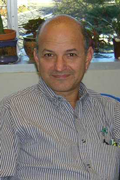
Dan Dubovsky
MSW, FASD Specialist, Philadelphia, PA, USA
MSW, FASD Specialist, Philadelphia, PA, USA. Dan Dubovsky has worked for over 40 years in the field of behavioral health, as a child care worker in residential treatment, and as therapist in residential treatment, inpatient, outpatient, and community settings. Dan has presented in the US and internationally on FASD for over 20 years focusing on interventions for children, adolescents and adults. His son Bill, diagnosed with fetal alcohol syndrome at age 19, has been his mentor and best teacher.